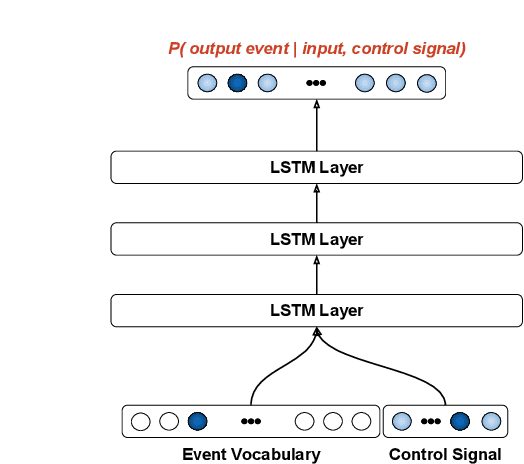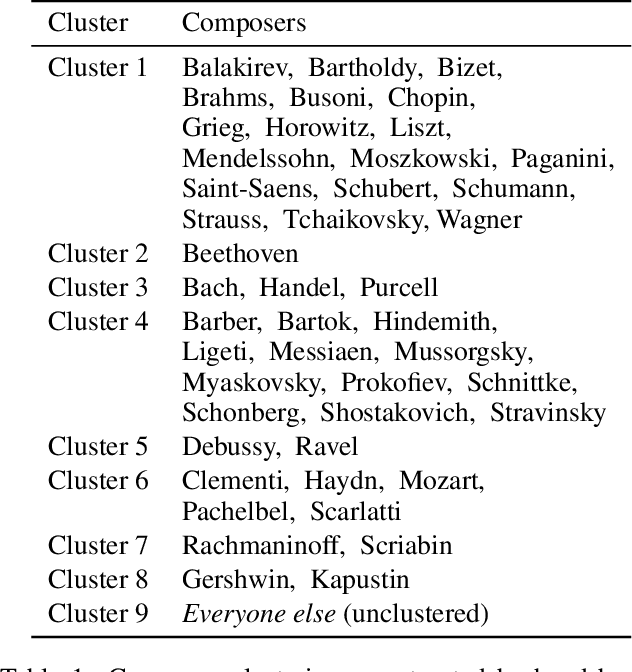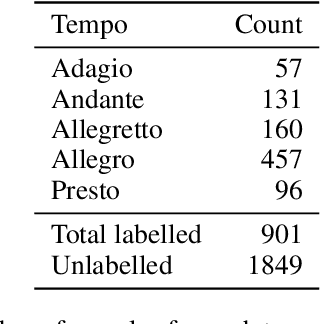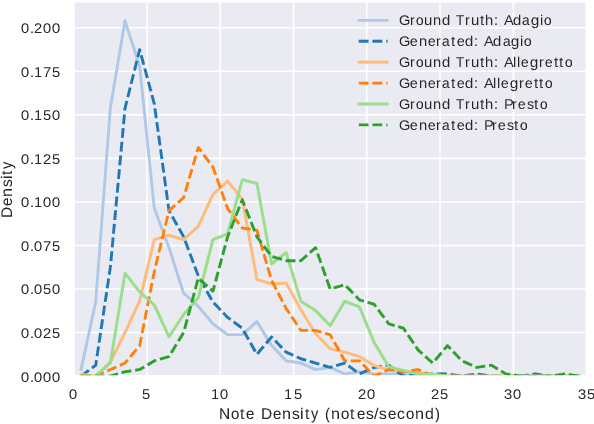Exploring Conditioning for Generative Music Systems with Human-Interpretable Controls
Paper and Code
Aug 04, 2019



Performance RNN is a machine-learning system designed primarily for the generation of solo piano performances using an event-based (rather than audio) representation. More specifically, Performance RNN is a long short-term memory (LSTM) based recurrent neural network that models polyphonic music with expressive timing and dynamics (Oore et al., 2018). The neural network uses a simple language model based on the Musical Instrument Digital Interface (MIDI) file format. Performance RNN is trained on the e-Piano Junior Competition Dataset (International Piano e-Competition, 2018), a collection of solo piano performances by expert pianists. As an artistic tool, one of the limitations of the original model has been the lack of useable controls. The standard form of Performance RNN can generate interesting pieces, but little control is provided over what specifically is generated. This paper explores a set of conditioning-based controls used to influence the generation process.
 Add to Chrome
Add to Chrome Add to Firefox
Add to Firefox Add to Edge
Add to Edge